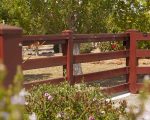Australia’s fencing and gate industry is facing a critical skills shortage, exacerbated by the absence of nationally recognised qualifications. This lack of formal structure undermines safety standards, limits workforce capability, and restricts the industry’s ability to meet growing demand across residential, rural and commercial sectors.
National qualifications are urgently needed to professionalise the trade, ensure consistent and relevant training, and support sustainable industry growth.
Industry Overview and Challenges
The fencing and gate sector plays a vital role in the nation’s infrastructure, yet it remains without formalised, nationally endorsed training. The result is a fragmented workforce with varied skill levels and limited development pathways.
Key challenges include:
Inconsistent Skill Levels – Without standardised training, worker competence varies widely.
Safety Risks – Substandard installations and insufficient training can result in unsafe fences and gates.
Barriers to Workforce Entry and Retention – The lack of structured learning and qualification pathways discourages young people from entering the trade and restricts long-term career progression.
These issues are compounded by broader national workforce shortages in the built environment sector, which is projected to face significant demand growth over the next decade.
The Fencing Industry Skills Pathway Initiative
Fencing Industry Australia has developed the Skills Pathway Initiative to address this workforce crisis. The initiative aims to establish national qualifications that are relevant, practical and tailored to the needs of contractors and their teams.
Key components of the initiative include:
Industry-Led Training Content – Developed in consultation with contractors, manufacturers and training providers.
Standardised Competency Benchmarks – Defining skills and knowledge expected at each stage of a fencing career.
Job-Ready Focus – Ensuring training is practical, hands-on and aligned with actual worksite requirements.
This initiative builds a foundation for safer worksites, more capable contractors, and a more attractive trade for new entrants.
Pilot Programs and Progress
A major step forward has been the national recognition of the Agriculture and Rural Fencing Skill Set (AHCSS00191). This includes units in fencing installation, electric fencing operations, and work health and safety – providing a clear starting point for further development of specialist qualifications.
A successful pilot program based on this skill set was delivered at TAFE NSW’s Orange campus, equipping participants with real-world skills and validating the effectiveness of formalised training. The program’s positive reception demonstrates strong demand for further national training options.
The Skills Pathway Initiative continues to gain momentum through the ongoing efforts of three dedicated groups: the Advisory Committee, the Agriculture and Rural Taskforce, and the Gates and Automation Taskforce. The Advisory Committee remains focused on strategic oversight, ensuring the Initiative aligns with industry needs and workforce priorities. Meanwhile, the Agriculture and Rural Taskforce is working to refine relevant skill sets by mapping real-world job roles to nationally recognised units of competency. At the same time, the Gates and Automation Taskforce is progressing the development of safety-focused industry guidelines, including the new voluntary Code of Practice, aimed at addressing the high incidence of injuries and fatalities in this growing sector. Together, these groups are laying the foundation for national accreditation and improved workforce capability across the fencing and gate industry.
National qualifications are essential to the future of the fencing and gate industry in Australia. They will improve safety, build a stronger and more capable workforce, and support industry-wide professionalism. With continued collaboration across contractors, suppliers, training organisations and industry bodies, the sector can deliver training solutions that reflect the real needs of fencing businesses today and prepare the workforce for tomorrow.
Image: Agriculture Skill Set Pilot Program Course Participants







